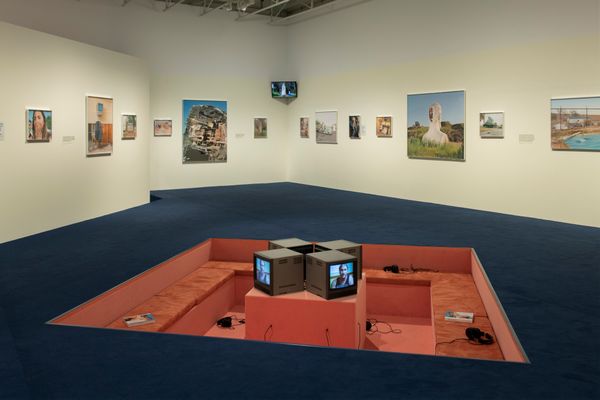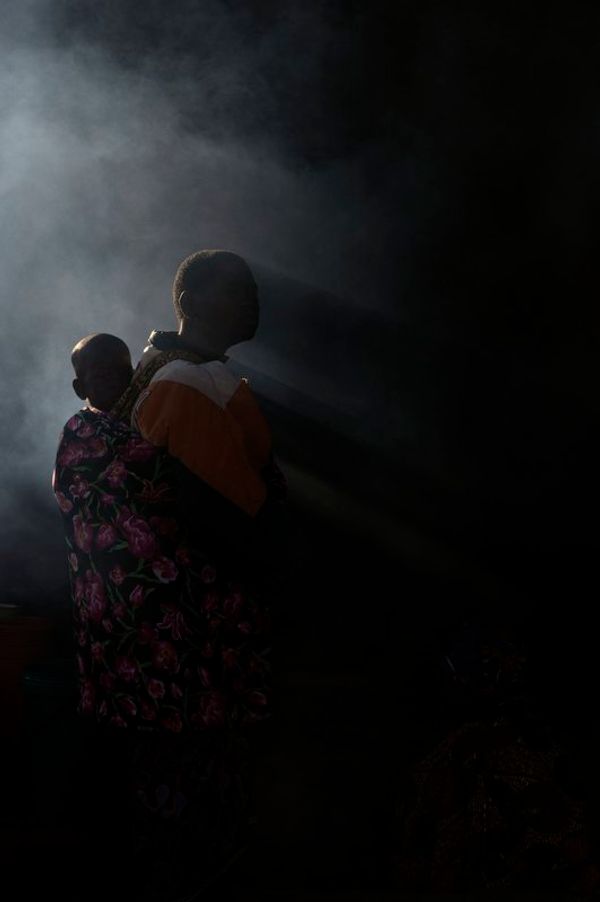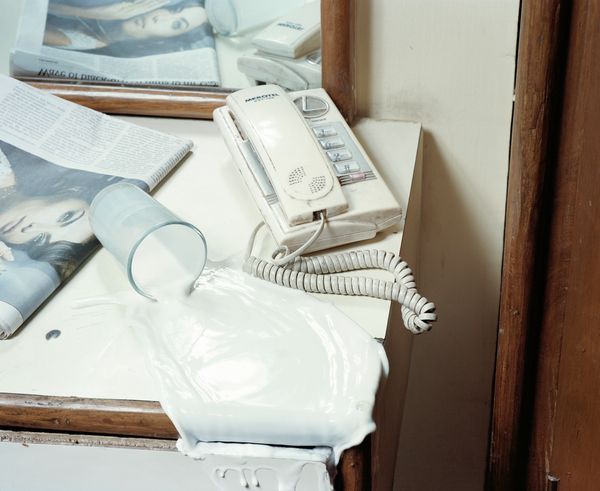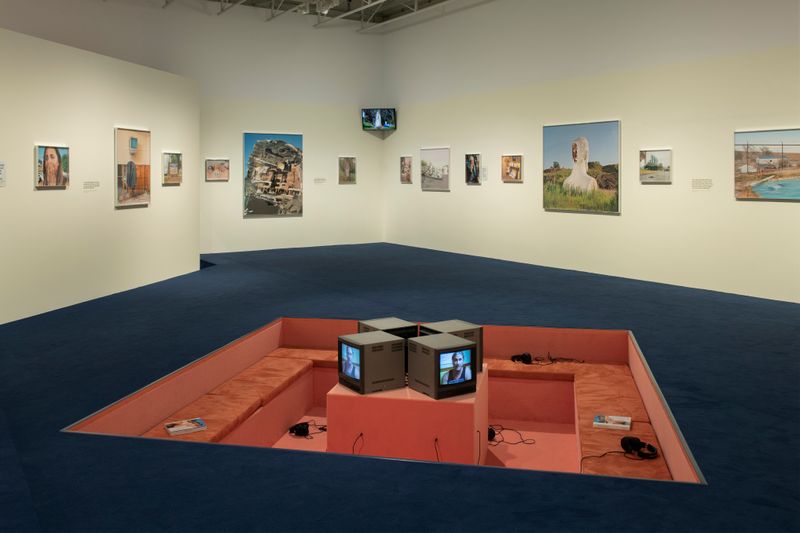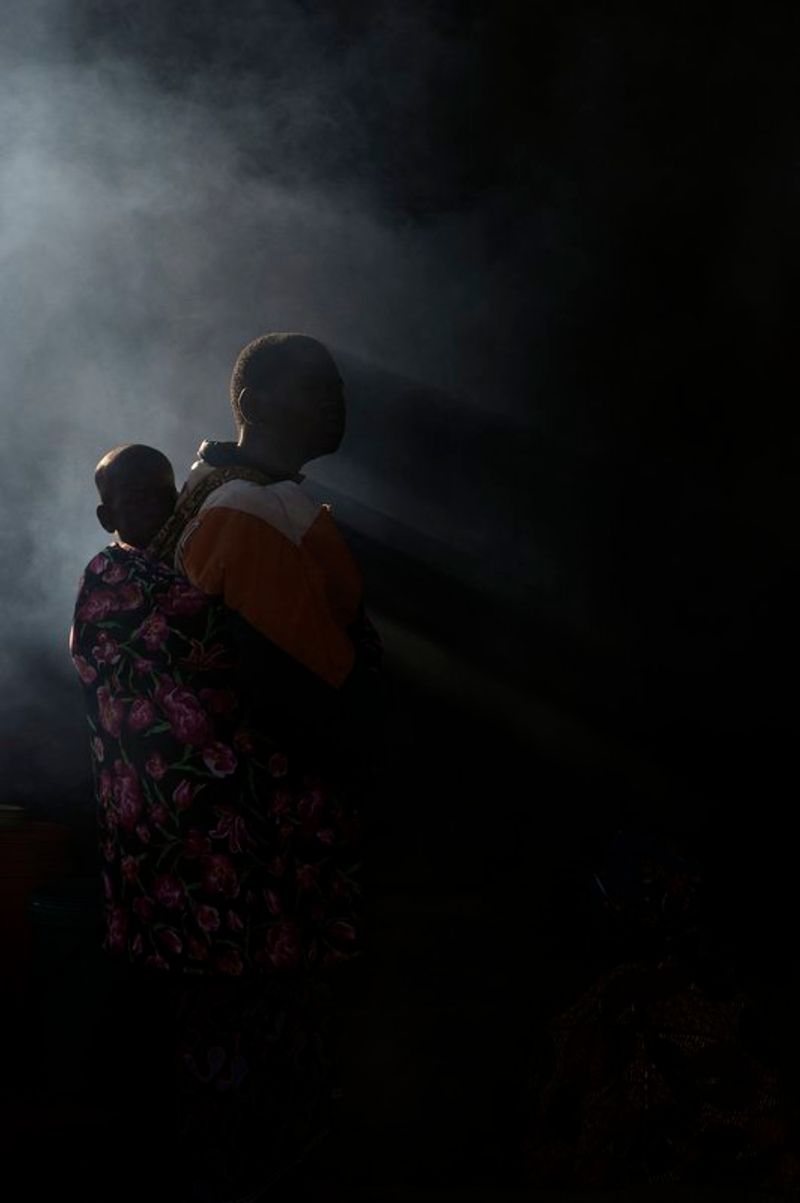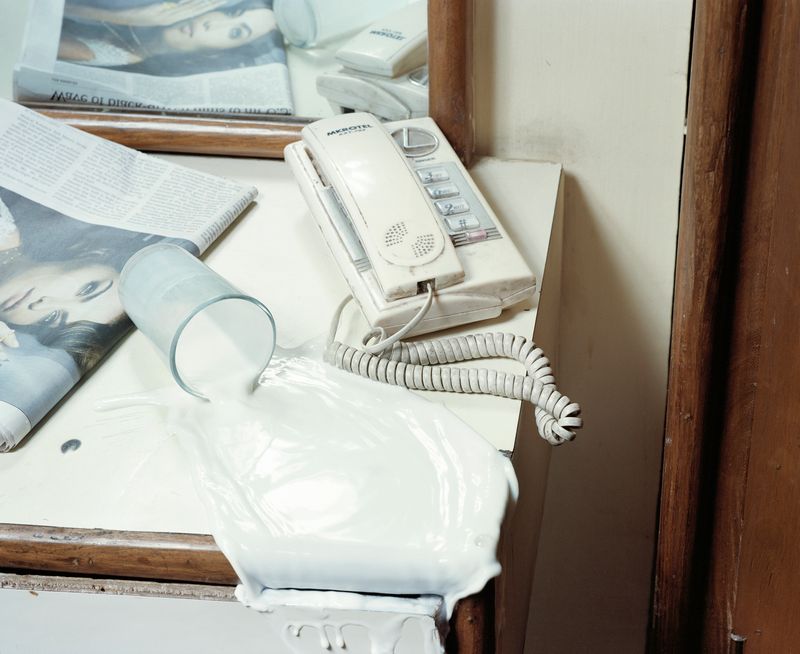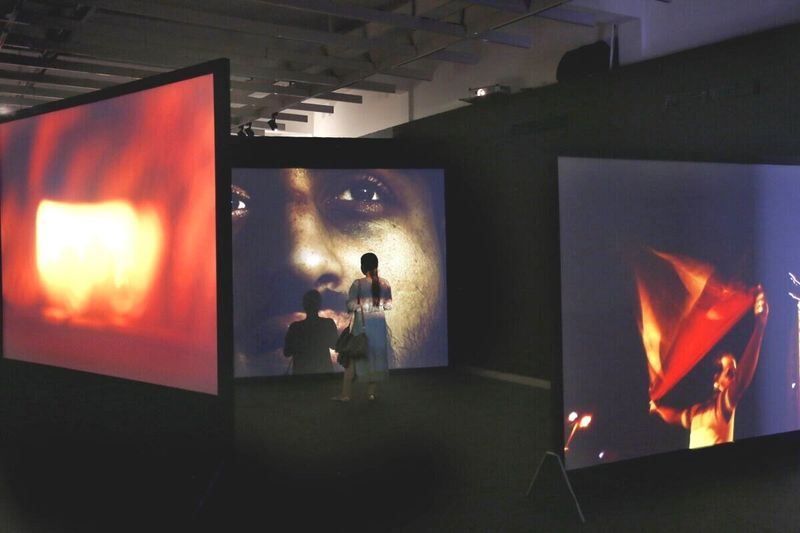Max Pinckers and Laura El-Tantawy's Insights On PhMuseum New Online Documentary Photography Masterclass Criticae
-
Published9 May 2023
-
Author
In conversation with Criticae's co-heads, their complementary visions of documentary photography and of the role of education come together, making the specificities of a nuanced program emerge. The result is a comprehensive educational experience.
Photography is a medium for the dissemination of stories. It can be a tool to reflect on urgent issues, as well as a means to dive deep into the personal and the intimate. What is the role of the self in this process? How can a critical reflection on the medium emerge? How can we define our own relationship with photography, and what does it mean to represent and shape narratives through it?
The critical, the speculative and the personal are going to intertwine in this third edition of PhMuseum's Masterclass on Documentary Photography CRITICAE, for the first time held collaboratively by internationally renowned practitioners Laura El-Tantawy and Max Pinckers over a period of 8 months. By applying before May 19, students will be eligible for one full scholarship covering the cost of the whole program. Structured throughout group classes offering theoretical and practical guidance, and one-to-one mentoring sessions, Criticae offers a rich program of studio visits too, from this year shared with the other PhMuseum's programs Mediae and Folio. Artists and experts in the field such as Federico Clavarino, Amak Mahmoodian, Mathieu Asselin, Jon Uriarte, Silvia Rosi and more will take you behind the scenes of their practice, while you'll get the chance to connect with an international, expanded network of peer students.
We talked to Pinckers and El-Tantawy about their approaches and about the way they'll come together to shape a multifaceted program, having the development of its students' voices as the main core.
Ciao Laura and Max, how would you describe your take on documentary photography to someone who doesn’t know your work?
Laura: Documentary photography from my point of view is about exploring the social and environmental issues that define what makes us human today. It’s about emotional engagement, both from the perspective of the author and the perception of the viewer. A sense of responsibility towards an issue or a story and a passion to relay it to an audience in a visually articulate way.
Max: I view documentary photography as a speculative process that goes beyond the mere representation of an external reality. In my work, I merge fact, fiction, and imagination to reflect on the ways in which realities and truths are defined and represented in order to gain a deeper understanding of how concepts take shape in photography. Ultimately, I seek to create new modes of documentary that foreground the deceptive nature of images while emotionally and empathetically engaging with people and their stories.
What are your core principles when it comes to teaching? In the broader panorama of photography education, what do you aim for this program to bring to the table?
Max: When it comes to teaching, I believe in creating a collaborative and inclusive environment where participants are encouraged to explore their ideas and develop their critical thinking. My core principles involve fostering curiosity and dialogue, encouraging experimentation, and promoting self-reflexivity in the creative process in order to define a personal vision and intention. In the broader panorama of photography education, I hope this program will bring a fresh perspective to the practice of documentary photography. By delving into different modes of documentary photography, we hope to guide participants in defining their relationship with the medium and developing a critical, unique voice. The program will encourage students to explore the philosophical aspects of the medium, as well as the emotional, political and analytical, creating a space for dialogue and exchange that aims to enrich their understanding of photography.
Laura: Teaching is about giving and receiving. I always see my participants as authors and I encourage them to view themselves this way. Teaching photography is not about the principles of using the camera — it’s about visual literacy and emotional engagement. One cannot truly turn to explore the world without having the genuine desire to explore their own inner world first. It’s about being vulnerable, honest and ready to look within in order to understand why you view the world the way you do. As an educator it’s important for me to stay up to date with what is happening in our industry, but I encourage participants to look beyond photography — to explore music, theatre, film and painting. I don’t believe in being obsessed with photography. We are multidimensional individuals and photography is part of our identity and it’s nurtured by our many interests and inspirations. I also believe that you receive as much as you give and when I teach, I want each and every participant to benefit from the experience and feel they have my support when they need it. I grow a lot in the teaching process as well. One of the greatest assets of this program is its longevity. It allows participants the opportunity to take a deep dive into their work for an extended period of time. The fact that it’s available online offers the opportunity of having a diverse spectrum of participants from around the world. It’s creates a sense of community and comradery between people that surpasses border and language. This enriches the program, especially with the backdrop of the pandemic’s isolation.
You have both led one edition of CRITICAE each. This year for the first time, you will share the program as co-heads. What can students expect from this collaboration?
Laura: They can expect a double dose of inspiration and support through Max and myself. But more importantly, they will have the input of the two of us — Max and myself engage with photography and bookmaking in very engaging but different ways, and this will give participants a rich landscape for varied opinions, feedback and opportunities for growth. It’s the kind of course I wish was available 10 or 15 years ago. We structured the course to ensure we are both bringing the full breadth of our experience to the program while allowing for each participant to benefit from having personal and shared time with us as individuals.
Max: I’m very excited to lead the course this year together with Laura, and l look forward to learning from her too. Laura and I share a common interest in exploring the political and conceptual dimensions of documentary photography, and we bring different approaches and perspectives to the table. By working together, we hope to provide participants with a more nuanced and multifaceted view of the medium, as well as the opportunity to learn from two different but complementary voices.
Do you have any advice to share with future students?
Max: My advice to future students is to always be critical, to take risks, and to be open to experimentation. Don't be afraid to challenge the status quo, and always be willing to question your assumptions and beliefs. Remember that the process of making art is as important as the final result, and that in order to shape a personal vision it is important to stay true to yourself and to understand what drives you in the first place.
Laura: I would say this is a one of a kind opportunity to grow your visual language. Come curious, excited, with an open mind and ready to take your work to the next level.
-----
APPLICATION KEY DATES
19 May - If you apply by this date you can be eligible for the full scholarship, and will automatically access the Early Bird Fee of €1,650.
9 June - If you apply by this date you can join the program by paying the Regular Fee of €2,000.
------Criticae Online International Masterclass On Documentary Photography is part of PhMuseum's new educational program, comprising four different masterclasses that will all share a single intake period, running from 18 April to 9 June, with classes beginning in October 2023. Each course is tailored to meet the needs of emerging photographers, artists, curators, and contemporary storytellers looking to bring their methods to the next level. Check out which program suits you best at phmuseum.com/education
